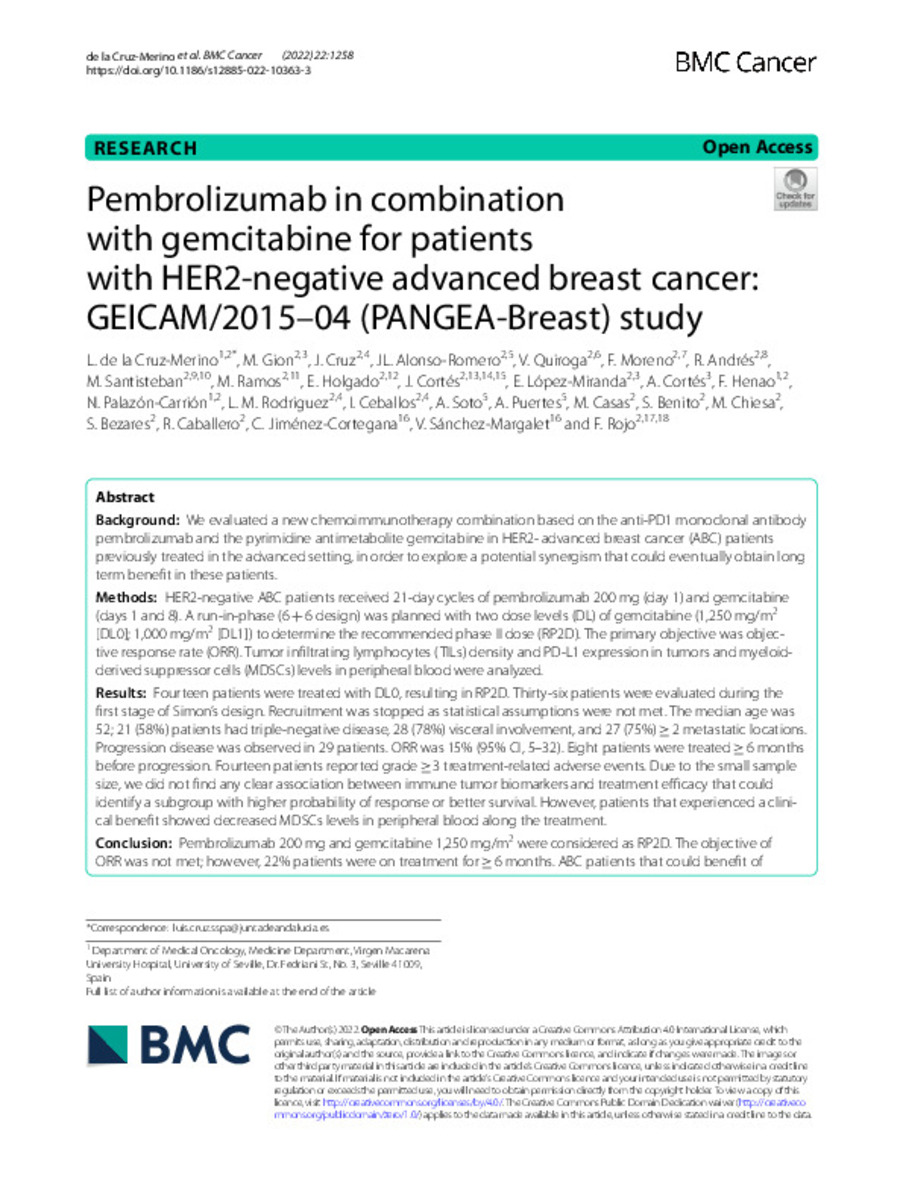Pembrolizumab in combination with gemcitabine for patients with HER2‑negative advanced breast cancer: GEICAM/2015–04 (PANGEA‑Breast) study
Keywords:
Advanced breast cancer
Chemotherapy
HER2-negative
MDSCs
PD-L1
Pembrolizumab
TILs
Note:
This article is licensed under a Creative Commons Attribution 4.0 International License
Citation:
Cruz-Merino, L. (Luis) de la; Gion, M. (M.); Cruz, J. (J.); et al. "Pembrolizumab in combination with gemcitabine for patients with HER2‑negative advanced breast cancer: GEICAM/2015–04 (PANGEA‑Breast) study". BMC Cancer. 22, 2022, 1258
Statistics and impact
0 citas en

Items in Dadun are protected by copyright, with all rights reserved, unless otherwise indicated.







